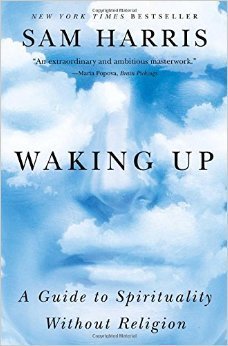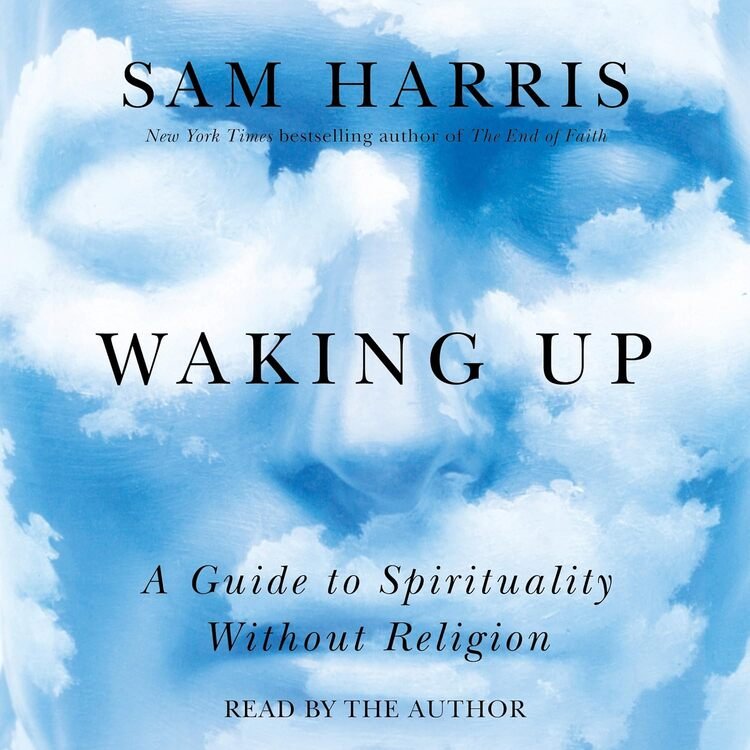Waking Up
Sam Harris’s Waking Up: A Guide to Spirituality Without Religion is a bold, thought-provoking exploration of spirituality.
Unlike traditional books on the topic, Harris challenges religious frameworks while celebrating the profound experiences that spirituality can offer.
For those seeking a rational, science-based approach to spiritual growth, this book delivers.
But is it for everyone?
Let’s break it down and explore the strengths, weaknesses, and transformative potential of this modern guide.

The Premise: Spirituality Without Religion
Harris begins by making a daring claim—spirituality doesn’t require religion.
He argues that you can explore consciousness, find inner peace, and experience transcendence without adopting religious dogma.
This idea feels liberating.
It opens the door for skeptics, atheists, and those disillusioned by organized religion.
At the same time, it’s a challenging proposition for people who find spirituality and religion inseparable.
Personally, I found Harris’s premise refreshing.
It made me rethink my assumptions about spirituality and broadened my perspective.

What Sets This Book Apart
Several elements make Waking Up stand out in the crowded world of spiritual literature.
A Science-Driven Perspective
Harris combines neuroscience, psychology, and philosophy to explore spirituality.
He explains the brain’s role in creating spiritual experiences and delves into meditation’s scientific benefits.
This grounded approach makes the book appealing to readers who value evidence-based insights.
Clear and Logical Writing
Harris’s writing is crisp, logical, and direct.
He avoids unnecessary jargon, making complex ideas accessible to everyone.
His tone feels conversational, like he’s having a thoughtful discussion with the reader.
Personal Stories
The book includes Harris’s personal journey with meditation and spirituality.
These stories add depth and authenticity to his arguments.
You get the sense that he’s not just writing as an academic but as someone who’s deeply invested in the topic.
Inclusivity for Skeptics
Harris invites skeptics to explore spirituality without feeling pressured to adopt beliefs.
He creates a space where logic and spirituality coexist, which is rare in this genre.
Key Lessons from the Book
Harris packs the book with profound insights.
Here are some of the key lessons that stood out to me.
Meditation is a Path to Self-Awareness
Harris emphasizes the transformative power of meditation.
He explains how mindfulness helps you observe your thoughts without judgment, creating space between you and your mental chatter.
For me, this idea felt like a revelation.
It shifted my understanding of meditation from a ritual to a tool for self-discovery.
Consciousness is Fundamental
A central theme of the book is consciousness and its role in spirituality.
Harris argues that understanding your mind is the essence of spiritual growth.
By exploring consciousness, you can unlock deeper levels of awareness and clarity.
Transcendence Without Mysticism
Harris challenges the notion that transcendence requires mysticism or faith.
He shows how ordinary practices like meditation can lead to extraordinary states of being.
This approach felt empowering.
It made transcendence seem achievable, not reserved for monks or saints.
The Illusion of the Self
One of the book’s most intriguing concepts is the idea that the self is an illusion.
Harris explains how our sense of identity is constructed by the mind.
By letting go of this illusion, you can experience a profound sense of freedom.
What I Loved About the Book
Harris’s approach to spirituality felt like a breath of fresh air.
Here’s what resonated with me the most.
Practical Advice
The book isn’t just theoretical—it’s practical.
Harris includes step-by-step meditation exercises and techniques that anyone can try.
I found these exercises simple yet effective, making the book immediately useful.
Inclusivity
I appreciated how Harris welcomed all readers, regardless of their beliefs.
Whether you’re an atheist, agnostic, or spiritual seeker, you’ll find value in his insights.
Honest and Vulnerable
Harris doesn’t shy away from sharing his struggles with meditation and spirituality.
This honesty made the book relatable and human.
It reminded me that spiritual growth is a journey, not a destination.
Challenging Yet Accessible
The book challenges traditional ideas while remaining accessible.
Harris pushes you to think critically but doesn’t overwhelm you with complexity.
This balance kept me engaged from start to finish.
What Could Be Better
While Waking Up is a remarkable book, it’s not without its flaws.
Here are a few areas where it fell short for me.
Limited Appeal for Religious Readers
Harris’s critique of religion may alienate deeply religious readers.
While his arguments are thoughtful, they might feel confrontational to those with strong faith-based beliefs.
Focus on Meditation
The book focuses heavily on meditation as the primary spiritual practice.
While this is valuable, it might feel limiting for readers seeking a broader exploration of spirituality.
A Few Overly Abstract Concepts
Some concepts, like the illusion of the self, can feel abstract and difficult to grasp.
While Harris explains them well, they might require rereading for full understanding.
How to Apply Waking Up in Your Life
This book isn’t just something to read—it’s something to live.
Here’s how you can start applying its lessons.
Start Meditating
Try the mindfulness exercises Harris outlines.
Begin with just five minutes a day and gradually increase the duration.
Observe Your Thoughts
Practice observing your thoughts without judgment.
This simple act can help you break free from negative thinking patterns.
Explore Consciousness
Take time to reflect on your sense of self and identity.
Journaling can help deepen this exploration.
Stay Open-Minded
Approach the book with curiosity.
Even if you don’t agree with everything, you’ll find plenty of thought-provoking ideas.
My Personal Take on the Book
Reading Waking Up felt like a wake-up call for me.
It challenged my beliefs about spirituality and opened my mind to new possibilities.
The book inspired me to take meditation more seriously, and it’s already had a noticeable impact on my life.
What I love most is how Harris makes spirituality feel approachable.
You don’t need to subscribe to any dogma or join a group.
All you need is a willingness to explore your mind.
Final Thoughts: Should You Read Waking Up?
Waking Up: A Guide to Spirituality Without Religion is a must-read for anyone curious about spirituality beyond religion.
It’s thought-provoking, practical, and empowering.
Harris’s clear writing and grounded perspective make complex ideas accessible, while his personal stories add depth and relatability.
If you’re looking for a modern take on spirituality that values reason and evidence, this book is for you.
It’s not just a guide—it’s an invitation to explore the vast landscape of your own consciousness.
Pick up a copy, dive in, and see where the journey takes you.
You might just wake up to a whole new way of being.



